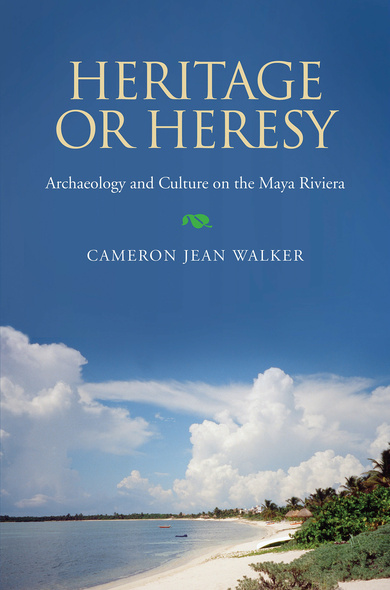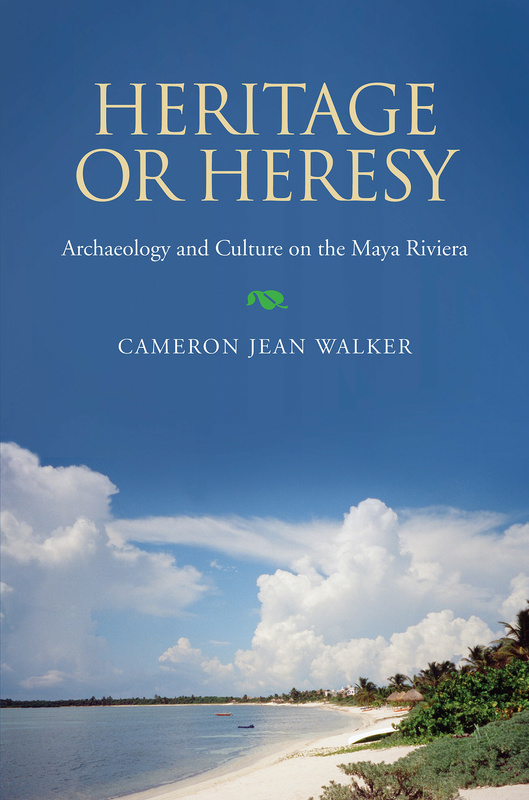Heritage or Heresy
Archaeology and Culture on the Maya Riviera
How can we effectively interpret and present one culture to another without stereotypes or over-simplifications? What is the best way to present an authoritative version of a national heritage without also endangering ancient sites or being insensitive to the local customs, beliefs, and religious practices of the indigenous peoples?
This volume addresses the ongoing thrust in archaeology to take the next step after preserving the past: interpreting that past for the future. That future audience includes both local citizens and tourists who may have little background in archaeology, anthropology, or the history of the culture featured. Walker presents the key components of the anthropological study of tourism as a global phenomenon, with particular emphasis on the more prominent arguments for how and why tourism is a universal and meaningful human activity. The highly controversial topic of authenticity is examined, with special attention given to how "authentic" has been defined and how it relates to the ways in which archaeological sites, artifacts, and cultural traditions are presented--or not presented--to the visiting public. The ephemeral promise of “authenticity” drives the heritage tourism industry, which is a key consideration for the long term economy of the Maya Riviera and elsewhere. Through analysis of seven archaeological sites on the Yucatan peninsula that are open to heritage touring, Walker reveals the planned growth of the Maya Riviera since the early 1970s and examines the impact of international tourism on both ancient structures and the contemporary Maya people and culture.
An important addition to the corpus of modern travel writing, which will provide for the educated public, anthropologists, and readers with ecological interests a new and more comprehensive understanding of the concepts of ecological tourism.'
--F. Kent Reilly III, Director, Center for the Arts and Symbolism in Ancient America, Southwest Texas State University
‘As a proper archaeologist, she accomplishes a successful excavation of the complexity of the Maya Riviera, cleaning off the politics, histories, individuals, and social symbolism of archaeological meaning and manufacture. Though there are other merits, this alone marks this as an important contribution by an archaeologist who conceptualizes deeply, through the layers of social significance, political economy, and cultural consumption of archaeology.’—Journal of Folklore Research
Walker’s book will be of interest not only to Mayanists, but also to scholars with interests in tourism. The book is well written and should engage and be accessible to students, both because of the subject matter—spring breakers may never view Cancun in the same way—and the author’s style and concise presentation. In sum, Walker’s thoughtful meditation will help readers reflect on the meanings of tourism, both positive and negative, and hopefully will inspire more careful and responsible action in the future’—American Enthnologist
Cameron Jean Walker is Research Associate in the Department of Anthropology at California State University, Fullerton. She is Vice President for Societies for the Archaeological Institute of America.





